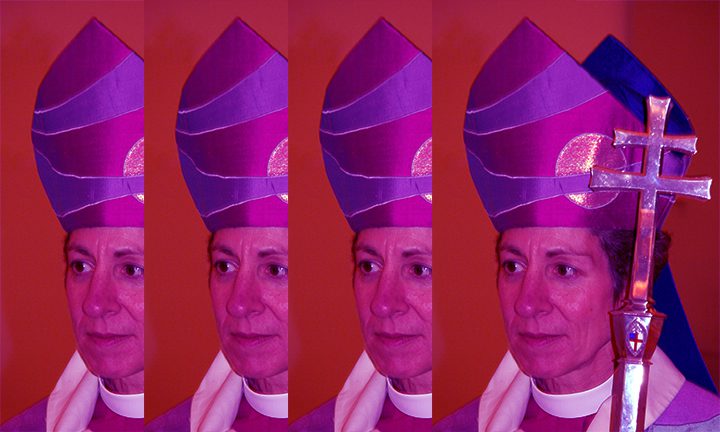Leading up to Kate Kelly’s disciplinary hearing in 2014, the Church of Jesus Christ of Latter-day Saints published a statement that emphasized the role of local leaders:
“Disciplinary councils may be held by local leaders when members preach doctrines contrary to teachings of the Church and refuse to be counseled… Council proceedings are considered private matters between a member and his or her local Church leader.”
The statement implies that Church leadership agrees with Kelly’s local leaders, while also distancing global leaders from the responsibility of disciplining members. For Dehlin, the Church’s recent statement affirms similar support but elaborates on the great trust the Church places in local leaders:
“Holding a disciplinary council for a member of the Church is not something that any local leader takes lightly. Such councils are always held in private, and the member is always invited to be a part of that discussion. The decision as to whether to hold a disciplinary council, when and for what reasons rests with the local leader who knows the individual best. Local leaders operate under general principles and guidelines of the Church.” (emphasis added)
Supporters of Ordain Women and Mormon Stories have been quick to dismiss these statements as disingenuous, but I’m more interested in considering the repercussions of leaving discipline to local leaders. Putting aside the question of whether Kate Kelly and John Dehlin in particular should have been excommunicated, is the current policy as effective as official statements suggest?
“The Local Leader… Knows the Individual Best”
That local leaders will know and understand the member best is the primary reason the Church has given for leaving disciplinary councils to them. Perhaps that is true for members in stable jobs, who are rooted to their community and have lived there for years. But it holds less true for individuals who move frequently for school or work. For transient members, facing a disciplinary council of local leaders could easily mean defending oneself to strangers. That risk is further exacerbated by the fact that in the US the groups most likely to engage in activism within the church are often the groups most likely to be transient: students, academics, and young people. And while a local leader will likely know a member better than someone in a far-removed position of authority (such as a general authority), there is no guarantee the leader will know the individual well or understand the particulars of their life.
Local leaders are themselves transient in a sense, because their positions are filled on a volunteer basis and are only temporary. Leaders are not required to be long-time members of the local community, and membership in a community does not automatically grant a bishop or stake president a close friendship with any person in his flock. Even if most local leaders are personally rooted in the community, one change in leadership can determine whether a member remains in good standing. Mormon feminist bloggers refer to the constant shift in local leadership as “bishop roulette,” a phenomenon recent commenters at The Exponent describe as “undeniable” and “terrifying.”
On the other hand, knowing the member in question may in fact make it difficult for a leader to look past his own feelings and recognize the promptings of the Spirit. Like many life-long members, I have heard of both wonderful and concerning experiences with local leaders. Among those many stories, I have heard first-hand accounts of local leaders who allowed their friendship with an individual to overshadow their knowledge that the individual was engaged in serious sin. Recently, examples such as Cliven Bundy and Bruce Jessen demonstrate that members can remain in good standing despite publicly encouraging others to engage in behavior contrary to the Church’s teachings.
In other cases, first-hand accounts have described over zealous local leaders limiting membership privileges for issues as small as staying married to an inactive member or publicly stating personal support of same-sex marriage. Church policy provides an avenue for addressing a local leader’s abuse: members can appeal a decision. But by that stage a member is put in the position of proving a leader overstepped, and as the official statements on Kelly’s and Dehlin’s discipline make clear, Church leadership places high faith in local discipline councils and allows a great deal of individual discretion.
Local Decisions: Global Consequences
Kate Kelly’s disciplinary proceedings caught national headlines in part because they were by definition anything but local. Even before Kelly chose to make the letters from her stake president public, her move from Virginia to Utah, combined with her planned move to Kenya, complicated the matter. Kelly had already left Virginia when her local leaders there communicated the full extent of their concerns. Despite her move, those leaders held enough sway to keep her records from transferring to her new ward, thus maintaining their control over her disciplinary council. If the decision truly rests with local leaders, then the timing of Kelly’s move may have been an important factor in her excommunication.
Whether her leaders were right or wrong to call a disciplinary hearing and excommunicate her, the consequences clearly reached well beyond the regional and temporary stewardship of lay clergy. Whether they were right or wrong, their decision prevents Kelly from participating in ordinances on another continent, though she would now fall under the stewardship of different lay clergy. If the decision to excommunicate a member rests solely on the shoulders of local leaders, then right or wrong, Kelly and Dehlin would perhaps still be considered members in good standing, simply by living in a different state, town or country.











